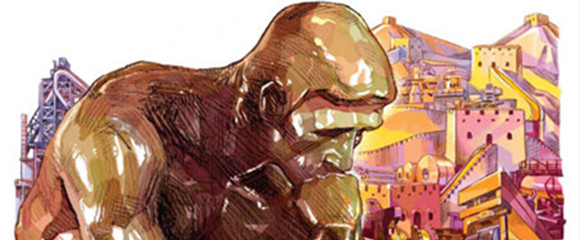Saving deficit, not China, threatens American dream
Updated: 2016-06-02 07:52
By STEPHEN S. ROACH(China Daily)
|
|||||||||
The US, however, is headed in the opposite direction. There is no interest in debating the saving issue, let alone implementing policies to address it. A pro-saving US policy agenda should draw on the following: longer-term fiscal consolidation, expanded individual retirement accounts and 401Ks, consumption-based tax reform (such as value-added or sales taxes), and interest-rate normalization. Instead, US politicians continue to focus on keeping the consumption binge going, regardless of its implications for the US' saving imperative.
The asymmetrical response of the world's two largest economies to their respective saving dilemmas has far-reaching consequences. To the extent that China makes progress on the road to consumer-led rebalancing, it will shift from surplus saving to saving absorption. Already, China's gross national saving rate has declined from a peak of 52 percent of GDP in 2008 to around 44 percent this year. It should fall further in the years ahead.
The US, long locked in a codependent economic relationship with China, cannot afford to ignore this shift. After all, along with reduced current-account and trade surpluses, China's consumer-led shift to saving absorption likely entails diminished accumulation of foreign-exchange reserves and reduced recycling of those reserves into dollar-based assets such as US Treasuries.
To the extent that America fails to boost its domestic saving, the lack of Chinese capital may well force the US to pay a steeper price for external financing, through a weaker dollar, higher real interest rates, or both. Such are the classic pitfalls of codependency: when one partner alters the relationship, there are consequences for the other.
No country can prosper indefinitely without saving. Holding the world's reserve currency, the US has gotten away with it, largely because the rest of the world let it. After all, the enablers-especially export-led economies like China, along with its resource-dependent supply chain-benefited from the US' consumption binge, as it drove an outsize expansion of global trade.
But those days are numbered. US voters-especially disenfranchised, angry middle-class workers-increasingly recognize that something does not add up. Yet US politicians continue to deflect the electorate's anger outward, dismissing the growth subsidy that accompanies the "kindness of strangers". It is time for politicians to own up to the uncomfortable truth: The saving deficit is the single greatest threat to the American dream.
Stephen S. Roach, a faculty member at Yale University and former chairman of Morgan Stanley Asia, is the author of Unbalanced: The Codependency of America and China.
Related Stories
Former World Bank president criticizes Obama over US deficit 2013-02-07 06:04
US deficit deal raises concerns about defense cuts 2011-08-02 09:45
US deficit panel recalibrates, seeks more support 2010-12-02 10:12
Bernanke sees moderate recovery but warns about US deficit 2010-04-15 16:01
Obama: US deficit may threaten recovery 2010-01-31 09:06
Today's Top News
Russia to promote EAEU-China economic cooperation
AIIB 'set to earn international trust, credibility'
EIB and AIIB to strengthen cooperation
Some 13,000 migrants saved, over 700 dead
Economists urge go-slow on EU's anti-dumping
Chinese investors eye European soccer goal
Rescue vessel eyed for the Nansha Islands
Steeled for change
Hot Topics
Lunar probe , China growth forecasts, Emission rules get tougher, China seen through 'colored lens', International board,
Editor's Picks

|

|

|

|

|

|







